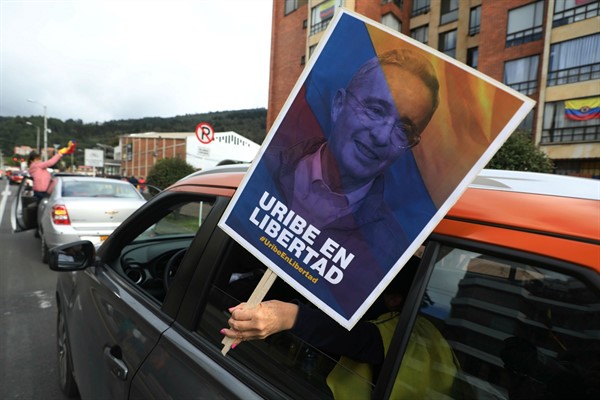The news came unexpectedly last week, sending shockwaves across the country. Colombia’s powerful former president, Alvaro Uribe, was ordered by its Supreme Court to be put under house arrest. Colombians were in disbelief. It’s impossible to overstate the magnitude of Uribe’s role in the country’s politics over the past two decades. To some, he is a hero who saved the nation; to others, a murderous villain who trampled human rights. But everyone agrees, Uribe was and still is an outsized political force in Colombia. He seemed untouchable.
Now, his detention creates two major tests for Colombia and its institutions. First, can the country hold together without veering back into violent unrest? Second, and almost as important for Colombia’s future, can its little-trusted judiciary handle such an explosive file, enforcing the rule of law while proving itself independent and nonpartisan?
The surprise order inflamed already profound, preexisting political divisions in a country where they have a long history of erupting into violence—not only during the half-century-long war between the state and Marxist guerrillas led by the Revolutionary Armed Forces of Colombia, or FARC, but also during the bloody decade known as “La Violencia.” In that period, from 1948 to 1958, the followers of rival parties slaughtered one another, leaving 200,000 Colombians dead.

